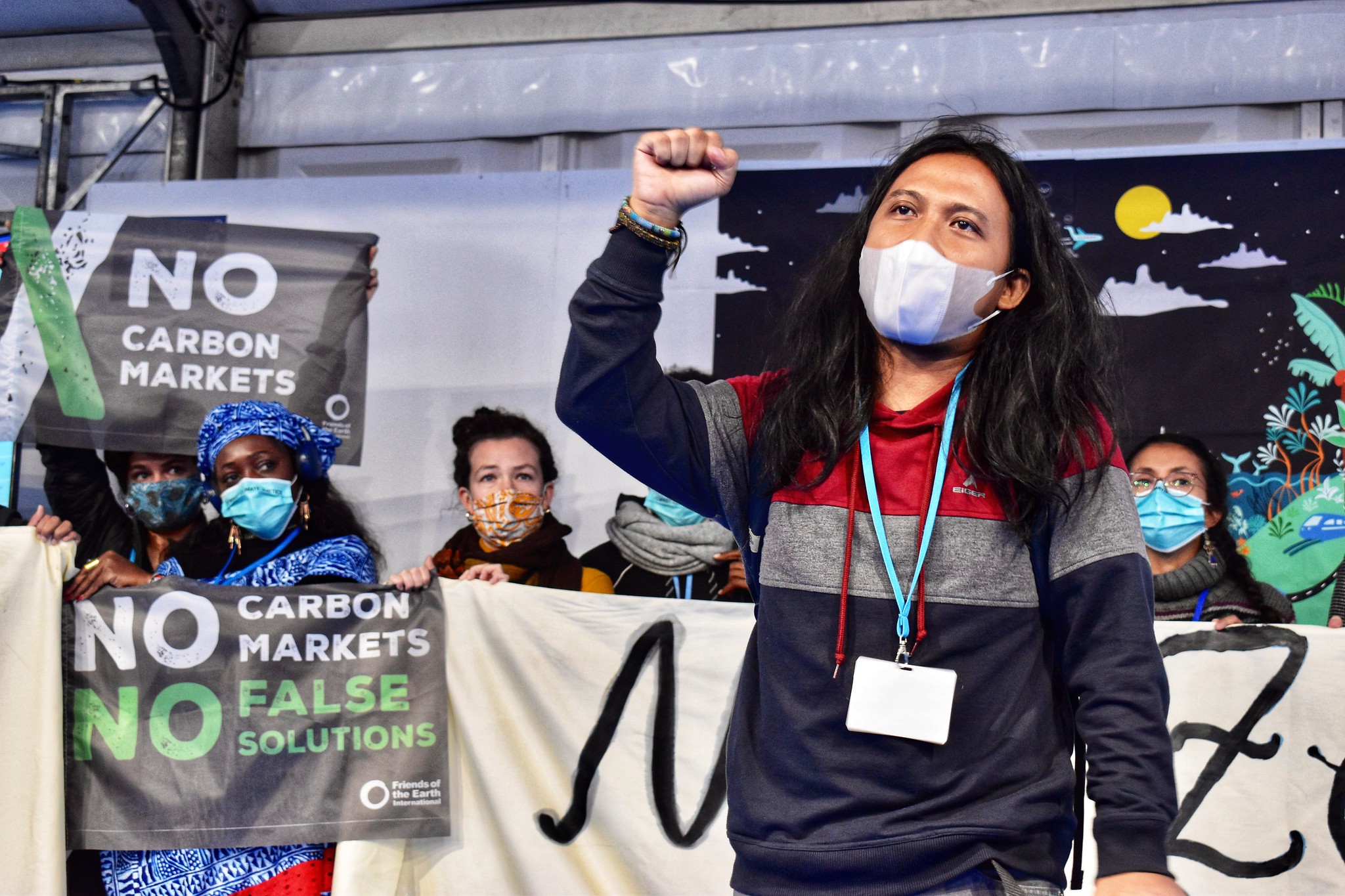
Friends of the Earth Intervene in INEOS Judicial Review of Fracking Ban
Friends of the Earth Scotland have submitted a public interest intervention in INEOS and Reach Coal Seam Gas’ judicial review of the Scottish Government’s decision to ban fracking. The intervention argues that not only is the ban on fracking lawful, but that the Scottish Government is arguably required to ban fracking in order to meet Scotland’s legally binding climate change commitments. Climate science demonstrates that over 90% of the world’s fossil fuel resources must remain in the ground in order to limit global warming to well below 2oC, as per the Paris Agreement.
INEOS is both challenging the legality of the ban on fracking and suing the Scottish Government for compensation due to an alleged breach of its human rights. The case is due to be heard in May.
Friends of the Earth Scotland’s Head of Campaigns Mary Church said:
“We are getting involved in INEOS’s judicial review of the fracking ban in order to put forward crucial climate change arguments in support of the ban that otherwise would not have been heard. Our intervention argues that the Scottish Government is required to ban fracking so as to urgently cut greenhouse gas emissions from fossil fuels, in line with legally binding climate targets.
“We are confident that the process to ban fracking was robust and fair, and we hope that the courts will find against INEOS. A two-year process looked at mountains of scientific evidence that spoke of the risks of the unconventional oil and gas industry to our environment, climate and people’s health. There is overwhelming support for the ban from communities on the frontline of this industry, people the length and breadth of Scotland, and almost all the parties at Holyrood.”
Friends of the Earth Scotland is represented by the Scottish law firm Balfour+Manson and Aidan O’Neill QC of Ampersand and Matrix Chambers with input from Leigh Day in London. The intervention is by way of a written submission, and provides information to the court on relevant EU, Scottish and UK environmental law, national and international obligations on climate change, as well as the link between human rights and environmental protection.
Balfour+Manson solicitor Sindi Mules said:
“Over 60,000 people engaged in the consultation on fracking before Ministers implemented the ban, with 99% opposed to the industry, demonstrating the tremendous importance of this case. We are delighted to be involved in this intervention which puts forward important legal arguments on climate change, and trust it ensures a fuller picture of the context around the ban is put before the court.”
Public interest interventions in the Court of Session are rare, and this is the first time such an intervention has put forward arguments in defence of the environment. As such it represents an important step forward for Scotland in terms of environmental rights and access to justice for the environment, enshrined in international law by the UNECE Aarhus Convention.
Leigh Day Solicitor Carol Day said:
“We are delighted that the Court has granted permission for Friends of the Earth Scotland to intervene in this important public interest case. As far as we are aware, this is the first intervention in the Court of Session on environmental issues and one of only a handful to have been approved under the new Judicial Review rules. FoE Scotland has submitted robust evidence on the environmental and health impacts implications of fracking. We hope the Court will take these points on board during the course of the hearing and uphold the Scottish Government’s moratorium on fracking.”
ENDS
Notes to Editors
- A public interest intervention is a legal submission from a third party in a Judicial Review. FoE Scotland had to apply to the Court of Session for permission to be allowed to make this intervention. See the Court of Session Rules of Court on public interest interventions in judicial review, chapter 58 17-20 https://www.scotcourts.gov.uk/docs/default-source/rules-and-practice/rules-of-court/court-of-session/chap58.pdf?sfvrsn=20
- The substantive hearing of the judicial review will take place in the Court of Session in May, with a procedural hearing on 1 May. The hearings are open to members of the public. The text of the intervention will be made available on FoE Scotland’s website at the start of the substantive hearing.
- The Scottish Government announced an ‘effective ban’ on fracking on 3 October 2017 following a 33 month moratorium which included an extensive evidence gathering process and a public consultation to which 99% of the 60,000 respondents opposed fracking https://foe.scot/press-release/scottish-gov-bans-fracking/. The Scottish Parliament voted to support and strengthen the Scottish Government’s ban on 24 October 2017, with Labour, the Greens and Liberal Democrats voting with the Scottish Government https://foe.scot/press-release/scot-parl-fracking-ban/
- An opinion from Lord Pentland in February following a procedural hearing in the case notes that there are 6 grounds for challenge in INEOS’s petition for judicial review, one of which is a claim for damages for the alleged violation of their rights under Article 1 of Protocol 1 ECHR https://www.scotcourts.gov.uk/docs/default-source/cos-general-docs/pdf-docs-for-opinions/2018csoh15.pdf?sfvrsn=0
- The UNECE Aarhus Convention is a environmental treaty which both the UK and the EU have ratified. One of its three founding pillars concerns access to justice for members of the public and NGOs in environmental matters.
- For background and discussion on public interest litigation in Scotland including public interest interventions see Dr Christopher McCorkindale, University of Strathclyde (2015) https://pure.strath.ac.uk/portal/files/45140240/McCorkindale_ELR_2015_Public_interest_litigants_in_the_Court_of.pdf and Professor Tom Mullin, University of Glasgow (2015) http://eprints.gla.ac.uk/113943/1/113943.pdf and in the UK including Scotland, Justice ‘To Assist the Court: Third Party Interventions in the Public Interest’ (2016) https://2bquk8cdew6192tsu41lay8t-wpengine.netdna-ssl.com/wp-content/uploads/2016/06/To-Assist-the-Court-Web.pdf
- Friends of the Earth Scotland is
* Scotland’s leading environmental campaigning organisation
* An independent Scottish charity with a network of thousands of supporters and active local groups across Scotland
* Part of the largest grassroots environmental network in the world, uniting over 2 million supporters, 75 national member groups, and some 5,000 local activist groups.
